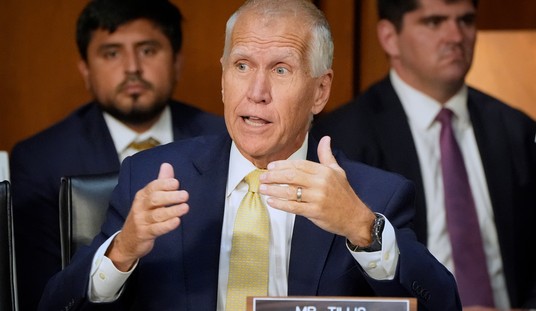Kratom, the energizing and focus-enhancing Southeast Asian herb traditionally used by manual laborers to maintain their output throughout the hard day, is mostly available everywhere in the United States.
In addition to its natural performance-enhancing benefits, as explained in a study published in Biomed Research International, “kratom preparations have also been used for centuries during socioreligious ceremonies and to treat various medical conditions, such as morphine dependence.”
Intense interest in these applications for kratom has exploded recently in the West. And law enforcement has slowly taken notice.
In the United States, kratom is currently fully legal under federal law, but increasingly individual states are looking at kratom bans at the state level.
Here’s the current state of the fight to keep kratom legal and accessible.
Texas
The Texas legislature is currently considering a statewide ban on kratom.
Via KXAN NBC, March 10, 2023:
This session, the Texas legislature will look at two bills related to regulating kratom products – an herbal substance that can produce opioid-and-stimulant-like effects– which are easily accessible for anybody over 18 in the state.
Florida
Via Tampa Bay Times, published March 6, 2023:
In recent weeks, Florida legislators have taken steps toward regulating kratom, a controversial substance derived from the dried leaves of a tropical Southeast Asian tree. In recent years, its popularity has skyrocketed in the U.S., including Florida, in part because of its purported opiate-like effects and widespread availability.
Nevada
Via 8 News Now (Nevada), published March 17, 2023, “Nevada lawmakers are proposing a ban on kratom, an herbal opioid-like drug that) ‘affects the same opioid brain receptors as morphine, appears to have properties that expose users to the risks of addiction, abuse, and dependence,’ according to the U.S. Food and Drug Administration (FDA).”
Mississippi
Mississippi House Bill 364 threatens to add kratom to schedule one, meaning it will be illegal to sell it in the state. Via WDAM News (Mississippi), published January 20, 2023:
Kratom and tianeptine could find themselves off the shelves in Mississippi.
State Representative Donnie Scoggin is working to pass House Bill 364, making both schedule one, making it illegal to sell them.
‘Once it’s illegal to sell, then, hopefully, we could get it off the gas store shelves and make it a whole lot harder to get,’ said Scoggin.
Of course, gas stations are probably not ideal sources of kratom or any supplement as the quality of their products is questionable. If you are going to legally purchase kratom, it’s advisable to vet products by looking for an authoritative seal of approval, such as one provided by the American Kratom Association (AKA).
Louisiana
Rounding out the list here, recent legislation in Louisiana will similarly make kratom a schedule one narcotic.
Via WAFB CBS (Baton Rouge), published March 3, 2023:
Whether in a nearby gas station or your local smoke shop, you’ve likely seen kratom on the shelves of one store or another…
Kratom has already been banned at the local level in both Livingston and Grant, and Ascension parish. Rep. Firment now wants to apply those rules statewide and classify kratom as a schedule 1 narcotic under the Controlled Dangerous Substances Act.
Indiana
In other states, the latest legal wrangling has gone in favor of kratom users and sellers. For example, Indiana may be on the cusp of re-legalizing kratom after the state made it illegal in 2014.
Via WRTV ABC (Indianapolis), published March 1, 2023:
This legislative session, we’ve seen multiple bills filed that would decriminalize substances that are currently illegal in the state of Indiana.
Several bills focused on marijuana decriminalization and legalization, but none of them moved forward.
House Bill 1500, which would decriminalize the substance called Kratom, is the only bill that has made progress.
“Some people use it as a replacement for a cup of coffee, for the energy boost and increased focus,” Mac Haddow, the Senior Fellow on Public Policy at the American Kratom Association, said. “Others have found that with a little higher serving size that they are able to deal with symptoms of anxiety and depression.”
For many pain patients, kratom has transformative potential. That’s one of the reasons it’s so valuable to introduce personal testimonials about the benefits of kratom into the public sphere.
WRTV talks to one such local man in Indianapolis:
‘I have had a bad back for many years,’ said Mike, who chose not to share his last name. ‘It’s still kind of off and on. So I like to use it for that as well.’
Mike has been using Kratom for seven years. He asked to remain anonymous for the interview because in Indiana if you get caught with Kratom it is a felony.
There is no, in my view, no legitimate public health or legal rationale to make or keep kratom illegal. It has been used for thousands of years — much longer than any pharmaceutical drug — throughout many civilizations and has many proven benefits.
Legalizing and regulating kratom protects both kratom producers/sellers and kratom consumers by providing a regulatory infrastructure to test products for quality and purity before they reach the market.
Of course, any pharmacological therapeutic, including kratom, comes with some inherent risk of side effects. Patients and their doctors should do all their due diligence when considering taking it.
Fortunately, most of kratom’s documented side effects are mild to moderate, especially compared to opioids (many people recovering from drug addiction turn to kratom as a safe alternative to opioids like heroin and fentanyl).
Opening up a new front in the failed drug war by outlawing a decent traditional medicine like kratom is both immoral and doomed to fail.
The opinions expressed by columnists are their own and do not necessarily represent the views of PJ Media.










Join the conversation as a VIP Member